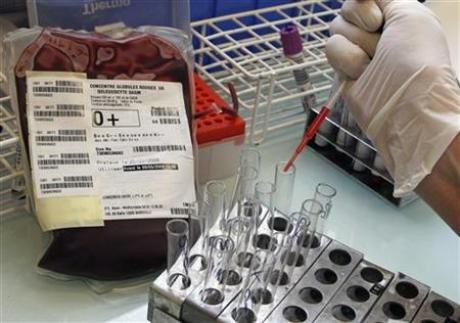
JODHPUR: At least 56 children suffering from thalassaemia tested positive for HIV, hepatitis B and hepatitis C after receiving blood transfusion at government-run Umaid hospital in Jodhpur. They are among the 130 thalassaemic children registered with Jodhpur’s Marwar Thalassaemic Society, said a source.
In the last one-and-a-half years, at least eight thalassaemic children in the city were found to be HIV positive while 46 others were infected by hepatitis B virus prompting a probe by the state government.
In December 2008, five children tested positive for HIV and 29 for hepatitis C virus. In May 2010, three more children were found HIV positive and 17 suffered from hepatitis C.
According to the Thalassaemic Society, if all the children who received blood transfusion are tested, the numbers may go up. Unless new techniques for testing are introduced, the hazard will remain, felt society members.
Recently, members met the principal of S N Medical College and the divisional commissioner and demanded nucleic acid test at Umaid Hospital blood bank to prevent infection during transfusion.
Medical college principal R K Aseri said a proposal for nucleic acid test which is a more advanced blood test has been sent to Rajasthan government which is now studying the expenses involved. The college has also formed a three-member committee to probe if there are any flaws in the blood bank’s testing methods.
The Society also demanded special consideration for families below poverty line and adequate staff and resources at Umaid Hospital’s thalassaemia ward.
Society secretary Vipin Gupta said, “We want the blood banks to have better technology.”
However, Raj Shree Behra, in-charge of Umaid Hospital’s blood bank, said there is no way to reduce to zero the window period, that is the time taken for seroconversion after exposure to the HIV virus.
Seroconversion is the development of detectable antibodies in blood to fight an infectious agent. It normally takes some time for antibodies to develop after the initial exposure to an infection.
If infected blood has been taken from any donor before the formation of detectable antibodies, there is no technology which can detect them in the stored blood at any point of time, said Behra.
Antibodies will develop only when the infected blood is given to any other person. Currently, ELISA test has a longer window period disabling it to detect any antibody at early stage in the donated blood. It is certified by National AIDS Control Organisation.